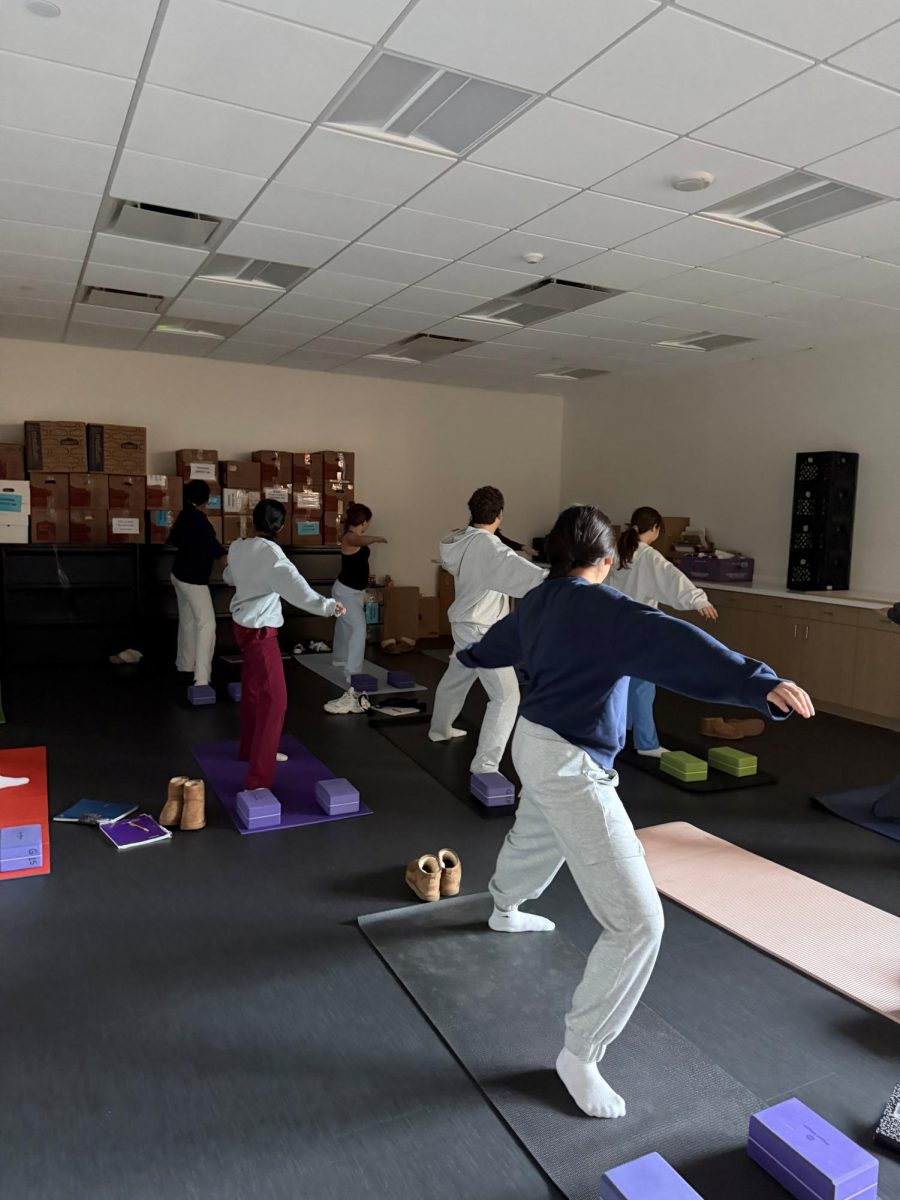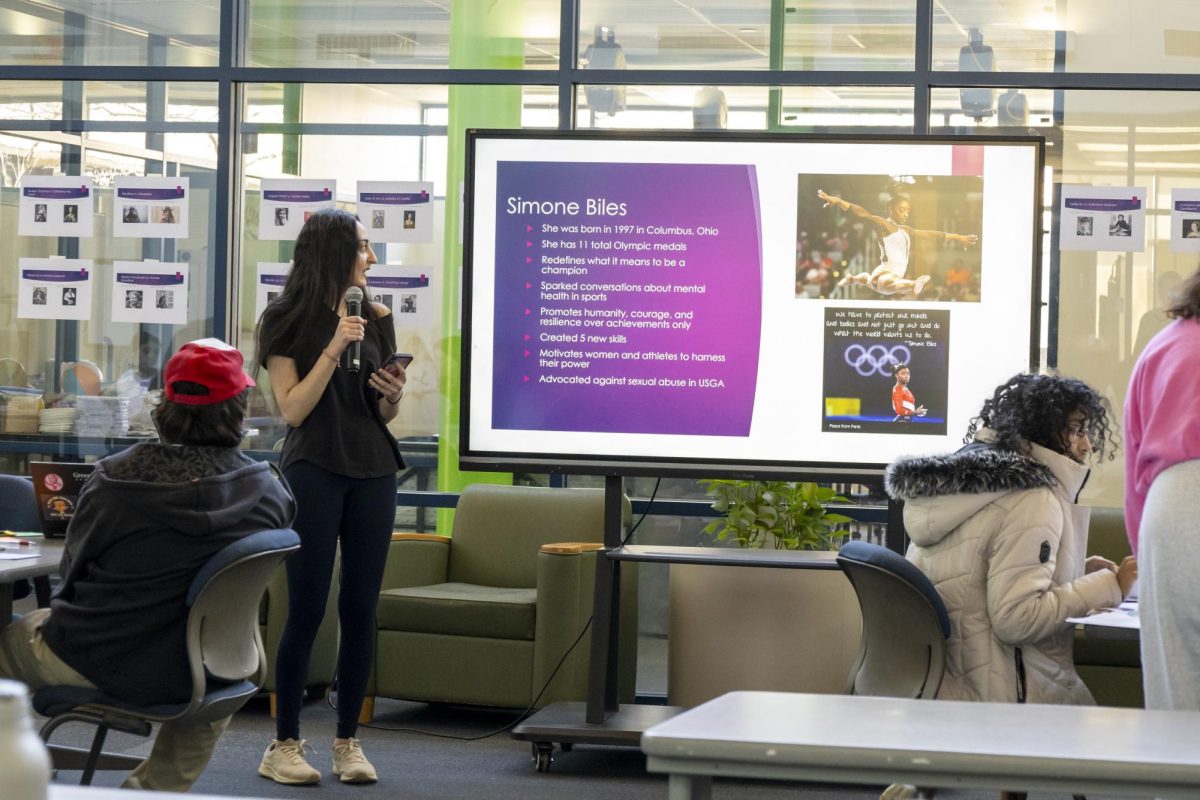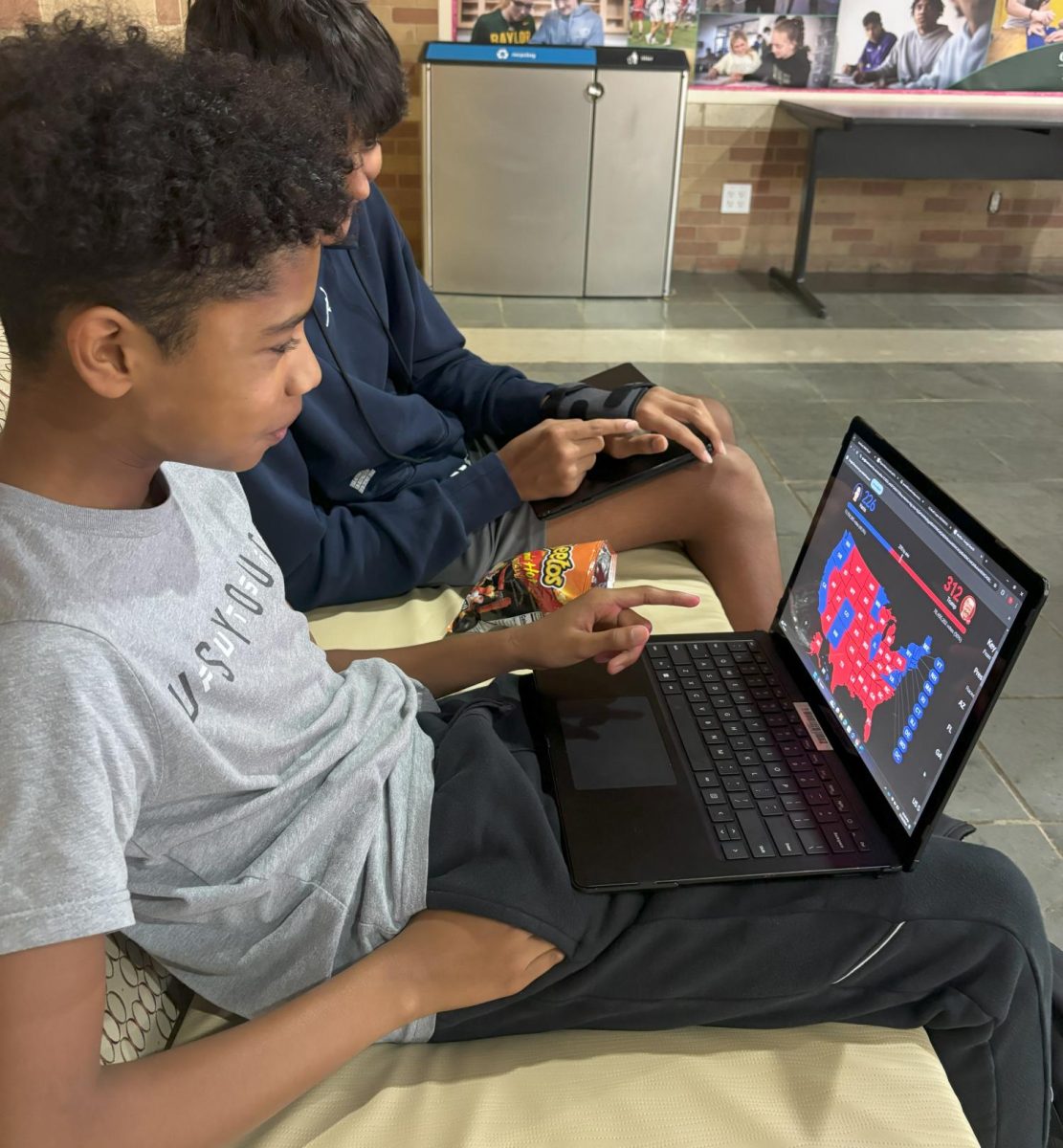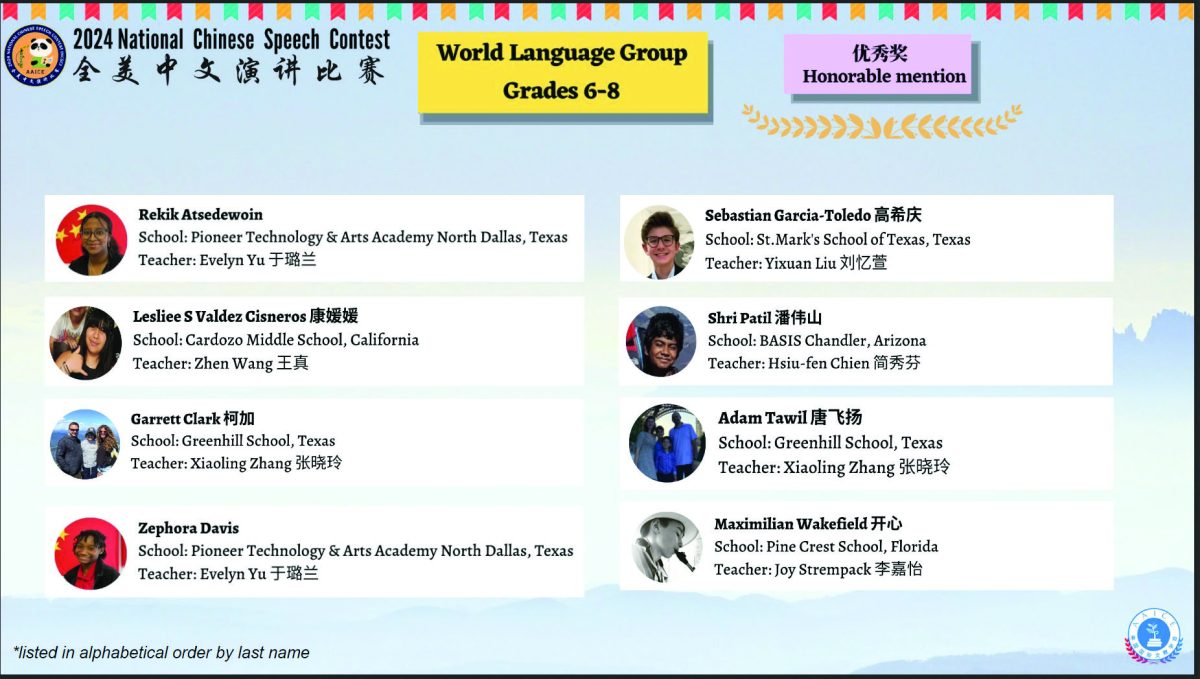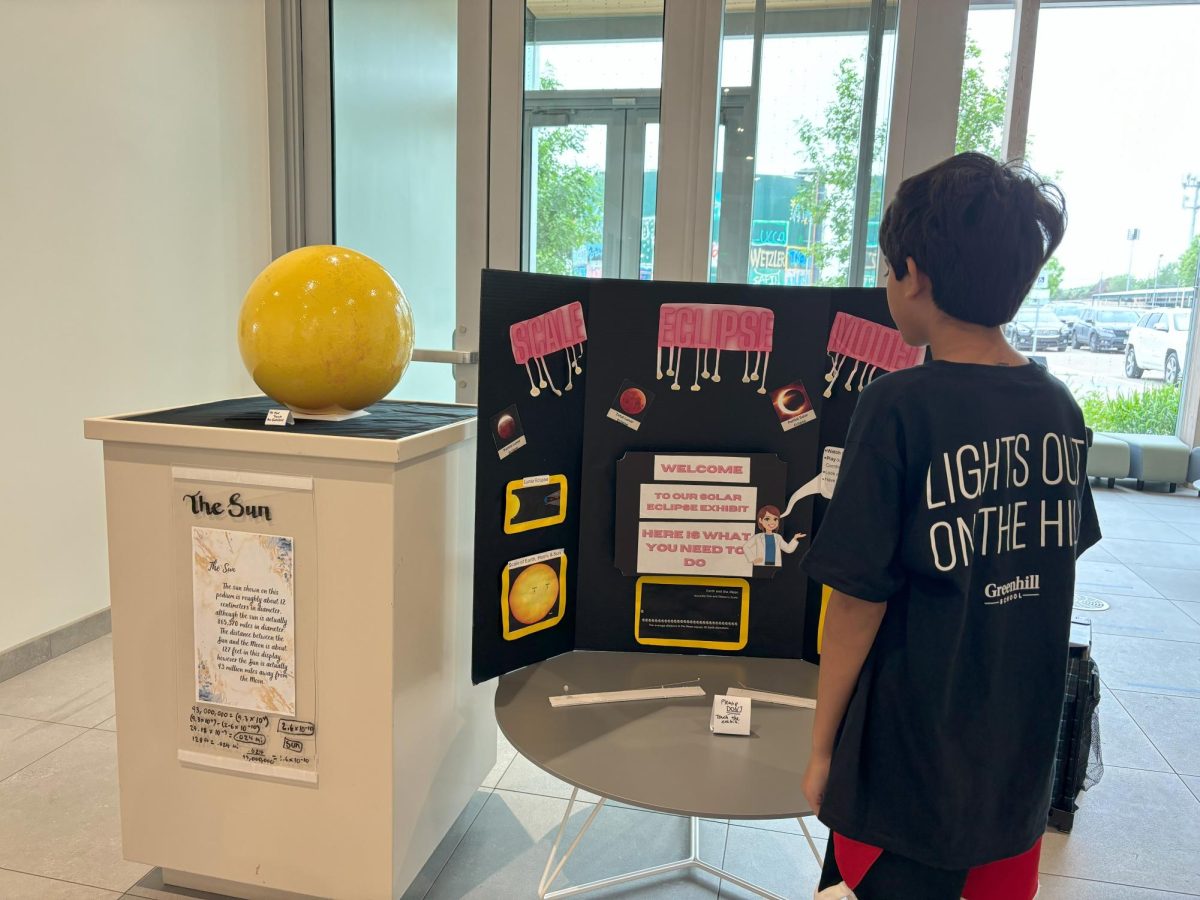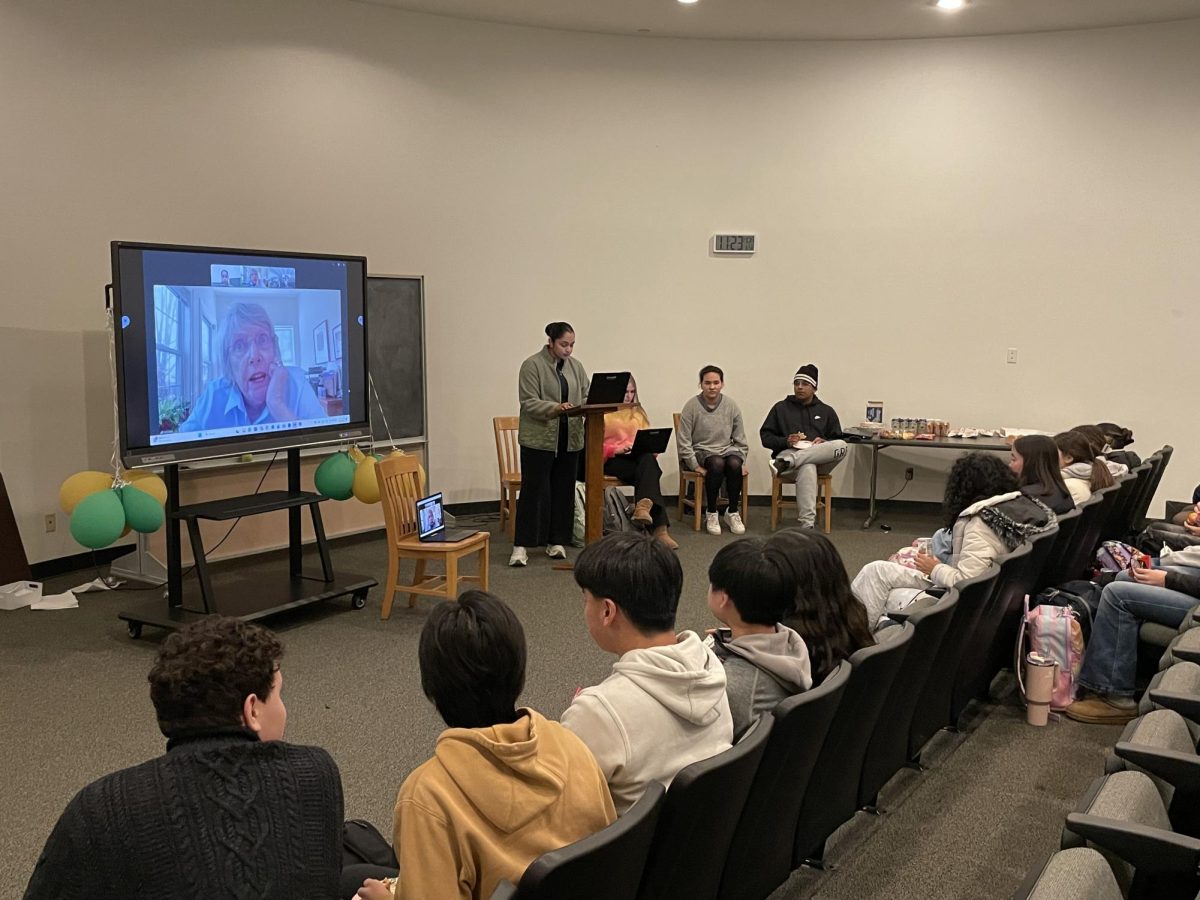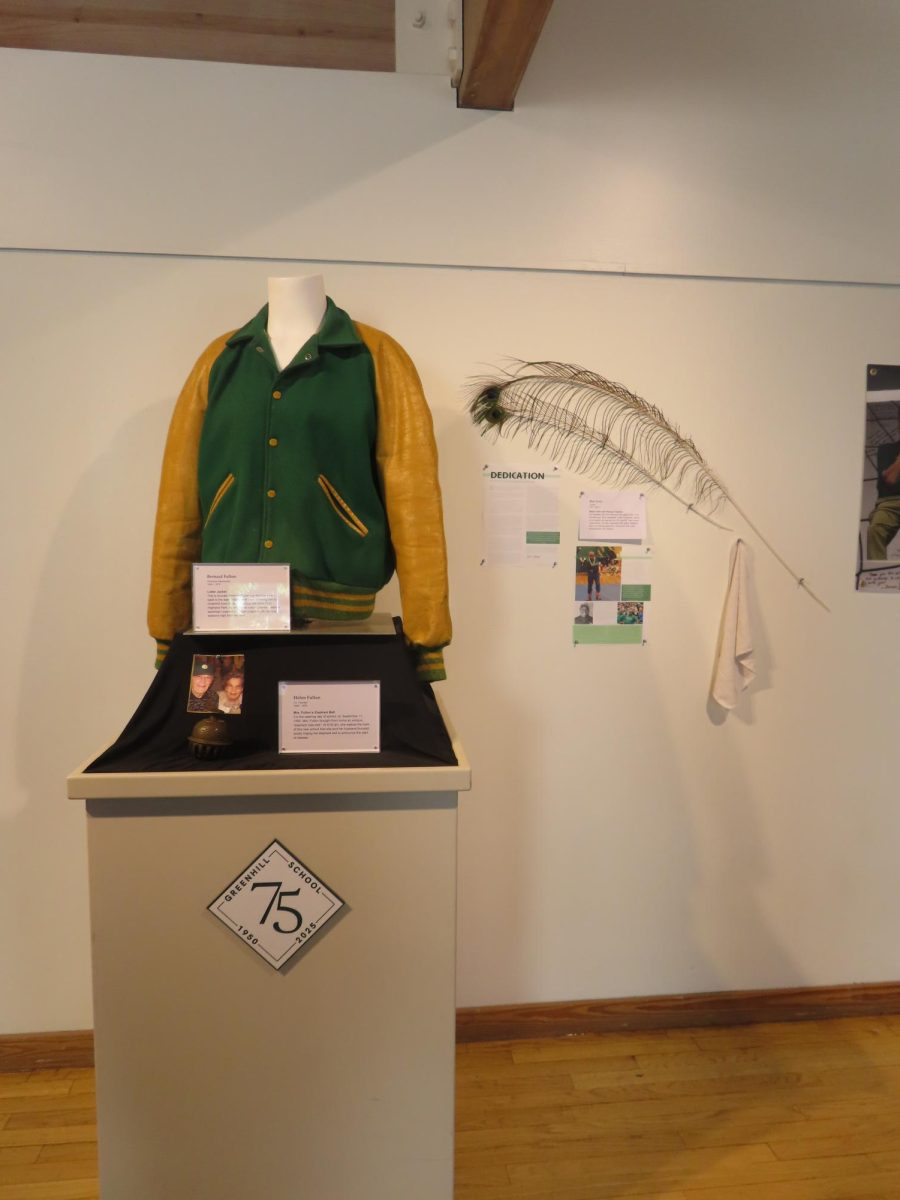VIDEO INTERVIEW LINK: https://vimeo.com/1069978304
Below is the transcript of the interview with Opal Lee.
Hunter Fields: Hello Greenhill, my name is Hunter Fields. I’m a senior here. I’m also the president of the Black Student Union for this school year.
Hazel Goes-Young: And I’m Hazel Goes-Young. I’m a junior here at Greenhill, and I’ll be serving as the 2025-2026 Student Body President.
Fields: Today, we’re incredibly honored to welcome an American legend and hero on our campus.
Goes-Young: Ms. Opal Lee! She was awarded the Presidential Medal of Freedom in 2024 by former president Joe Biden, inducted into the Texas Women’s Hall of Fame in 2023, taught for a little over two decades, and counseled for over nine years.
Fields: So please join us in welcoming the “grandmother of Juneteenth” herself, Opal Lee.
Ms. Opal Lee: I want you to know that I’m everybody’s grandma. You remember that.
Goes-Young: So how are you today, Ms. Lee?
Ms. Lee: I’m in good shape.
Goes-Young: That’s amazing. So, to begin, would you mind sharing how old you are?
Ms. Lee: Oh, I’m 98, and this is my 99th year.
Goes-Young: Ooh! Well, happy early birthday. So, what was life like when you were our age?
Ms. Lee: Ooh, when I was your age? How old are you?
Goes-Young: I’m sixteen.
Ms. Lee: How old are you?
Fields: Eighteen.
Ms. Lee: Okay, ooh. Sixteen, I think I was married. I finished high school at 16, and I got married, and I had four children.
Goes-Young: Four children?
Ms. Lee: Then I went away to college, to Wiley University, it is now. And I finished in three and a half years. I had to go home – I had children at home. Well, I got a job teaching in Fort Worth at the same school that I went to when I was a little girl. It was called Amanda F. McCoy Elementary School. I taught third grade, eight-year-olds. They were nice. They were still babies but they wanted to be grown. I liked the eight-year-olds.
Goes-Young: What was your favorite subject to teach?
Ms. Lee: Reading. I wanted every child to learn to read. Reading opened up so many doors for them.
Fields: Okay, Ms. Lee, I have a question for you. So many of our students on campus are just starting to hear about Juneteenth and they’re starting to learn about it in their classrooms, so can you explain what Juneteenth is and why it matters so much to you?
Ms. Lee: Juneteenth. You see, people in Texas were enslaved, and there had been the Emancipation Proclamation that they didn’t know about that freed them. And so when General Gordon Granger with several thousand colored troops came to Texas and told the people there they were free, ooh we celebrated. We started celebrating and we’ve been celebrating ever since.
Fields: A hundred percent, I love that. How do you think they felt when they heard that they were free?
Ms. Lee: Oh, they were so jubilant. I tell you, if I had been there, I would’ve wanted to do a holy dance. But people say when I try, I’m twerking so.
Goes-Young: Ha, I’m sure you’re great at dancing.
Fields: Hundred percent. I have one more question for you. So, I wanna ask about your title, the “grandmother of Juneteenth.” What does that mean to you?
Ms. Lee: I’m delighted to have that title, because I think of myself as everybody’s grandma. And my grandma was somebody who taught you things whenever she could, and I want so much for young people to understand that there’s so much that they can do. This is their world, and they need to be- they need to know that they can become the president of the United States when they’re 35, a girl or a boy.
Goes-Young: That’s amazing. On talking about activism, things like fighting for your freedom, I heard that you walked hundreds of miles from Fort Worth to Washington D.C., so what inspired you to walk?
Ms. Lee: Well, I’d taught school, had a family, but I jus felt there was something else that I needed to do. And I hit on the idea that if I walked from Fort Worth to Washington D.C. to ask the president to make Juneteenth a national holiday, that somebody would notice, and they did.
Goes-Young: So, were there any moments on that journey where you felt like giving up? Because that’s a pretty long walk. What gave you the strength to keep going?
Ms. Lee: Oh, I kept thinking, ‘Every mile I walk, then maybe people will learn about Juneteenth, and if I got to the White House and to the president, I’d make him aware of what Juneteenth was all about.’ ‘Cause people think it’s a Texas thing, or a Black thing, but it’s not. It’s about freedom for everybody.
Fields: How did it feel to be in the White House as Juneteenth was being signed into federal law?
Ms. Lee: I was awestruck. I was- I just didn’t know how to act. I wanted to do a holy dance.
Goes-Young: Aw, you should’ve.
Fields: I have one more question for you. What advice would you want to give to the future, to the generation who want to advocate for change?
Ms. Lee: I want the young people to realize that they are the ones to get us out of the quagmire that we are in. There’s still too much homelessness, hungry people, and people who don’t have insurance. And so this younger generation is going to alleviate those things, and they’ve got to be alleviated. Our people have so much they need to learn because they are gonna be the ones to make this United States the best country in the whole world.
Goes-Young: Thank you so much for helping start that, by the way. Ms. Lee, thank you so much for sharing your wisdom, your story and your heart with all of us. It’s been an honor to speak with you, and we know your legacy will continue to inspire both me and Hunter and Greenhill students – students everywhere – for the rest of your lives.
Ms. Lee: Thank you for having me.
Goes-Young: Of course, it’s been the greatest opportunity ever.

